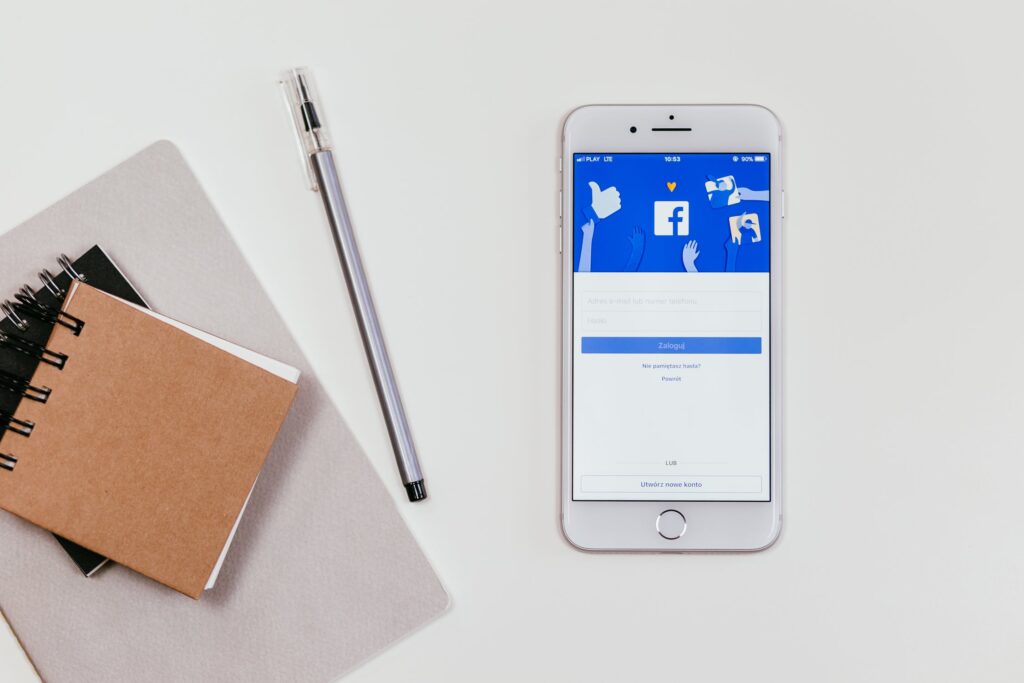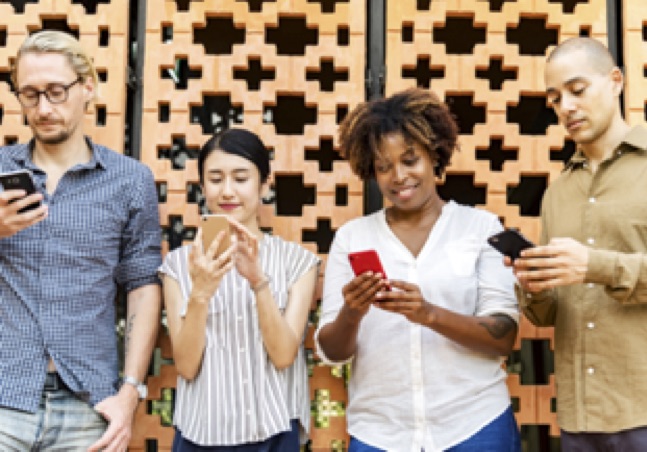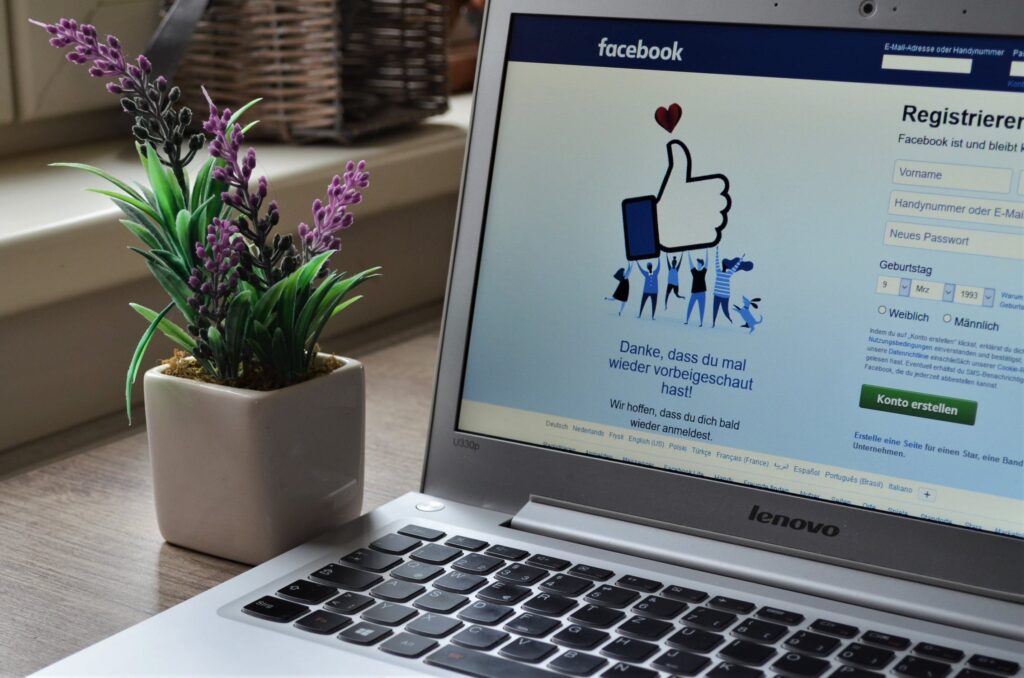Kianne H.

Figure 1: Freestocks.org. “Gold iPhone 6 With Note Pads.” Pexels.com, https://www.pexels.com/photo/gold-iphone-6-with-note-pads-744464/.
If I was to randomly ask people around campus, “what is Facebook?”, I believe every single person would be able to provide me with, at least, a general definition. If I asked, “do you or someone you know have a Facebook account?” I also can confidently assume that each person would answer yes. The reason I have such confidence on their answers is because, since being released fourteen years ago, Facebook has quickly become the largest Social Networking Site (henceforth SNS) on the internet hosting around 1.5 billion users (Marino et al 51). 1.5 billion is a very high proportion of the world’s population therefore, I suspect that many students have or know someone with a Facebook account. If I was to ask the same student or group of students, “would you consider anyone I your life a Facebook addict?” I can’t necessarily predict their answers with the same assurance as before. While I want to presume their answers would be yes, “not all people who spend large amounts of time on Facebook every day are necessarily addicted” (Kanat-Maymon et al 232) so it is difficult to accurately answer yes or no.
With 1.5 billion active users on Facebook and more users registering each day, it is not surprising that Facebook is the largest SNS in the world. A 2018 article on Facebook use claims that, “Every minute on [Facebook], 510,000 comments are posted, 293,000 statuses are updated, and 136,000 photos are uploaded” (Biolcati et al 1). People are spending a large amount of time on Facebook, seeking social satisfaction through the likes and comments on their posts, leading to more and more becoming addicted.

Figure 2: Rawpixel.com. “Four People Holding Mobile Phones.” Pexels.com. https://www.pexels.com/photo/four-people-holding-mobile-phones-1083622/.
Personally, I have found myself in situations where I am with friends and everybody around me is on their phone. They have no interest in socializing with the people around them and instead of building and maintaining personal relationships in the moment, they socialize virtually with other people over SNS like Facebook. I could name multiple people in my life who are addicted to Facebook including my parents and some of my friends. The problem is the decrease in personal face-to-face conversations and the impact on the quality and number of relationships because individuals are spending large amounts of time behind screens.
A 2018 study explains some of the many factors contributing to Facebook addiction. Although there are many, I will address only a few including loneliness, extraversion, and neuroticism. Loneliness contributes to higher chances of succumbing to Facebook addiction because, “lonely individuals turn to FB to find companionship and relief from problems and worries related to socialization” (Biolcati et al 7). When people are lonely they will often look to build relationships and find happiness in a variety of places, like through Facebook, and the satisfaction of connecting, whether virtually or not, encourages more Facebook use. Furthermore, extraversion and neuroticism are other personality traits that can influence Facebook addiction. Just as Facebook serves as a relationship platform for people who experience loneliness, it also “provides another platform for extraverts to communicate with friends and contacts made off-line” (Biolcati et al 8). When extroverts need a communication outlet and are not surrounded by people, they will likely use social media as a communication outlet. Neurotic individuals may also be influenced to use Facebook as an outlet for their anxious feelings or perhaps to present themselves in a way that is entirely controlled by what they choose to post. “Due to their social anxiety” neurotic individuals often prefer “social networking communication… due to their social anxiety” (Biolcati et al 8). Studies show that “extraverted and neurotic individuals [are] at [a] higher risk for maladaptive use of SNSs like Facebook” (Kanat-Maymon et al 233).

Figure 3: Dziuba, Tobias. “Photo of Laptop near Plant.” Pexels.com. https://www.pexels.com/photo/photo-of-laptop-near-plant-927629/
Facebook addiction has many consequences. For one, people addicted to social media “may find that it is difficult for them to focus their attention on other activities without thinking about things that they want to do [on] social media” (Sriwilai, and Charoensukmongkol 428). People who are victim to Facebook addiction find it increasingly difficult to practice mindfulness. They can’t be present through a situation or experience because their screens are so tempting. They struggle with the “ability to be mindful to what they are doing… because of the distraction caused by the urge to access social media” (Sriwilai, and Charoensukmongkol 428). A study of the impacts of social media addiction states that another consequence is social exhaustion. The article claims, that addiction to social media services, such as Facebook, can be associated with emotional exhaustion because people are “attentive to one’s thoughts and feelings without reacting upon them” and because of social media, they can “easily let go of any negative thought and feeling that they are experiencing and be less affected by it” (Sriwilai, and Charoensukmongkol 429). The consequences that come from addiction to SNSs like Facebook can severely impact the emotional and mental stability of any person who spends an overwhelming amount of time on social media.
Facebook is a social media site that billions of people have access to and because of its features, many become addicted. Although I have only presented the drawbacks of SNS use, I would like to briefly mention that SNSs like Facebook do have benefits. For example, Facebook has allowed me, and many others, to stay in contact with many friends across the world and serves as a platform for sharing information and communicating with groups and other members. Facebook does have benefits, but it is important to remain cautious with the amount of time you spend on the SNS as well as the intentions behind it.
If you’re a lonely individual, have neurotic tendencies, or are a major extrovert I caution you to be careful with the time you spend on Facebook. Ensuring that you are not putting an excessive amount of time and energy into when and how you appear online could save you from the mental and emotional harm that comes with Facebook and SNS addiction.
Bibliography
Biolcati, Roberta et al. “Facebook Addiction: Onset Predictors”. Journal Of Clinical
Medicine, vol 7, no. 6, 2018, pp. 1-12. MDPI AG, doi:10.3390/jcm7060118.
Kanat-Maymon, Yaniv et al. “Contingent Self-Worth And Facebook
Addiction”. Computers In Human Behavior, vol 88, 2018, pp. 227-235. Elsevier BV, doi:10.1016/j.chb.2018.07.011.
Marino, Claudia et al. “Modeling The Contribution Of Personality, Social Identity And
Social Norms To Problematic Facebook Use In Adolescents”. Addictive Behaviors, vol 63, 2016, pp. 51-56. Elsevier BV, doi:10.1016/j.addbeh.2016.07.001.
Sriwilai, Kanokporn, and Peerayuth Charoensukmongkol. “Face It, Don’t Facebook It:
Impacts Of Social Media Addiction On Mindfulness, Coping Strategies And The Consequence On Emotional Exhaustion”. Stress And Health, vol 32, no. 4, 2015, pp. 427-434. Wiley, doi:10.1002/smi.2637.